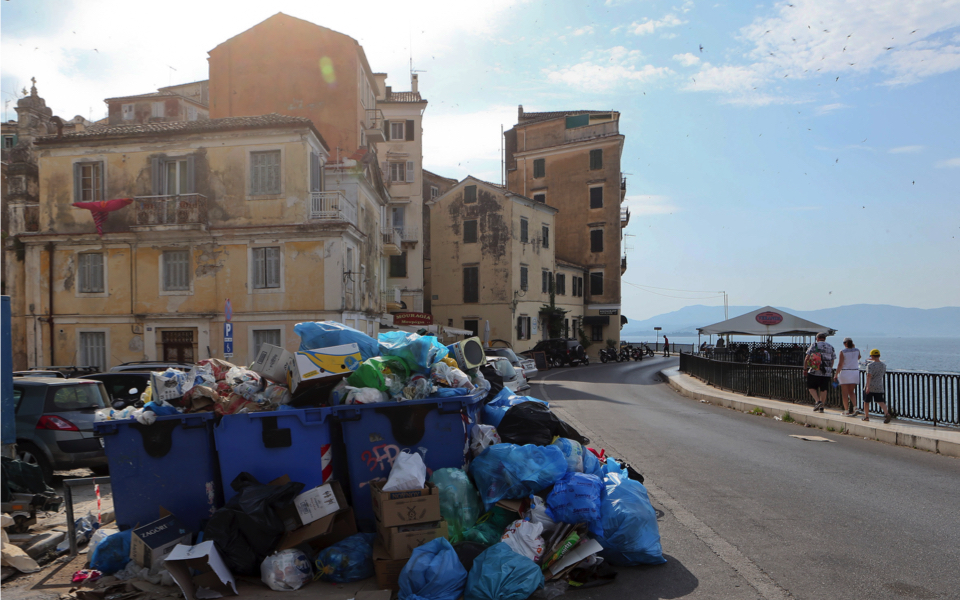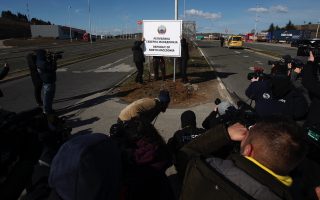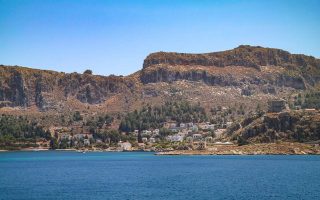The destruction of the real Corfu

Until last month, my house was surrounded on four sides by olive groves. Now, there are olive trees on three sides. On the fourth, a building site. The Greek proverb is: To cut down an olive tree is like killing a man. If so, then last month a mass murderer committed a chainsaw massacre to make way for four holiday apartments.
I chose my house – a standard 1970s bungalow – precisely because it had no “view” except the trees. I made this decision because, as a writer, I don’t want the distraction of a sea view, especially one as provocative as the distant coastline of Albania, from where I live in the north of Corfu.
And the holidaymakers who will become my transient neighbors will have precisely that view: trees. No sea, no beach, no picturesque mountains or valleys. Just trees.
And that is not the only disturbing development in this quiet, modest, uncommercial village. Two premises have just been converted into airbnbs, that indeterminate, unregulated new industry which is fast replacing bed-and-breakfast and drastically reducing the availability of long-term rentals. So much so that in Corfu Town the huge student population at the Ionian University has difficulty finding affordable accommodation.
This may be no more than a blip on the radar of national tourism. We are on the periphery of the periphery, it is precisely this remote location that makes it symptomatic of a lack of planning and coordination in the Greek tourist industry.
Corfu has not yet reached the saturation point from which Santorini is suffering, but the signs are there.
The imminent destruction of the headland of Eremitis, which was unsuccessfully challenged in the Council of State, is the greatest blemish on the face of tourism on this island for many years. Today, a pristine and irreplaceable area of ecological importance, natural beauty and socio-cultural significance; tomorrow, a concrete sunlounger. And all because Greek privatization agency TAIPED acquired the site and, in the interests of balancing the fiscal books, is unbalancing nature itself.
In 1987 Gerald Durrell, one of Corfu’s most effective publicists, bewailed what was happening to his beloved island: “I have had a most extraordinary affair of the heart. It started when I was 8 years old and I fell deeply and irrevocably in love with a ravishing creature who was mature and beautiful. She gave me joy, brightness, freedom of spirit and opened my eyes to beauty, color, knowledge, love and laughter. Her name was Kerkyra, the island of Corfu. Going back to her recently was like paying a visit to the most beautiful woman in the world suffering from an acute and probably terminal case of leprosy – commonly called tourism.” If he had known what is about to happen to Eremitis – or even the plot of land beside my house – he would have called it something much worse than leprosy.
This is all the more crucial because tourism not only accounts for 20 percent of gross domestic product (and rising) and at least 20 percent of the workforce, but, as former minister Stefanos Manos said recently in this newspaper, “tourists will not keep coming forever because maintaining tourism requires investment.” Not only investment, but sensitive judgment, mature foresight, and adroit deployment of human, economic and cultural resources, little of which do we see today. A half-liter of beer for 1.50 euros is paradise to a lager lout. But is it the image that Greece wants to project? Almost nothing is done at government level to encourage or support niche markets such as cultural tourism, winter sports or specialist festivals.
I have to remind myself of the need for this huge contribution to the country’s financial health as I push my way through the crowds of Japanese tourists disgorged by cruise ships. They will see nothing of the “real” Corfu and will spend almost nothing locally, during their eight-hour stopover, but, statistically at least, they are a central plank in the economy.
I remind myself of this because many of my friends make a seasonal living from tourism, in one form or another – tavernas, shops, guiding or car and villa rentals, and who only become human again in the winter months. My closest friend is about to become invisible for the next four months because her work with tourists demands that family, friends and the summer itself take second place to earning a living.
Manos’ point is significant because, although tourism is a huge earner, it is also vulnerable.
Last summer in Corfu the garbage crisis was so acute that the piles of uncollected rubbish and the accompanying stink convinced many regular visitors to stay away. And that crisis will recur this season because the problem has not been solved. And meanwhile, the bulldozers will move into Eremitis to create profits for a US consortium.
This may be a local problem, but it is a sign of the lack of care, forethought and plain common sense that threatens to permit a series of disasters that are ecologically, socially and, ultimately, economically catastrophic to Greece’s principal source of foreign income and, in the eyes of many, its raison d’etre.
Manos’ point was that tourism is the one safeguard of the Greek economy, the only one that seems on the surface to have no strings attached. But with climate change, no minister of tourism can guarantee sunshine. Or cheap beer.
Richard Pine was voted “Critic of the Year” in the 2018 Irish Journalism Awards. He lives and works in Corfu, and is the author of “Greece Through Irish Eyes.”





